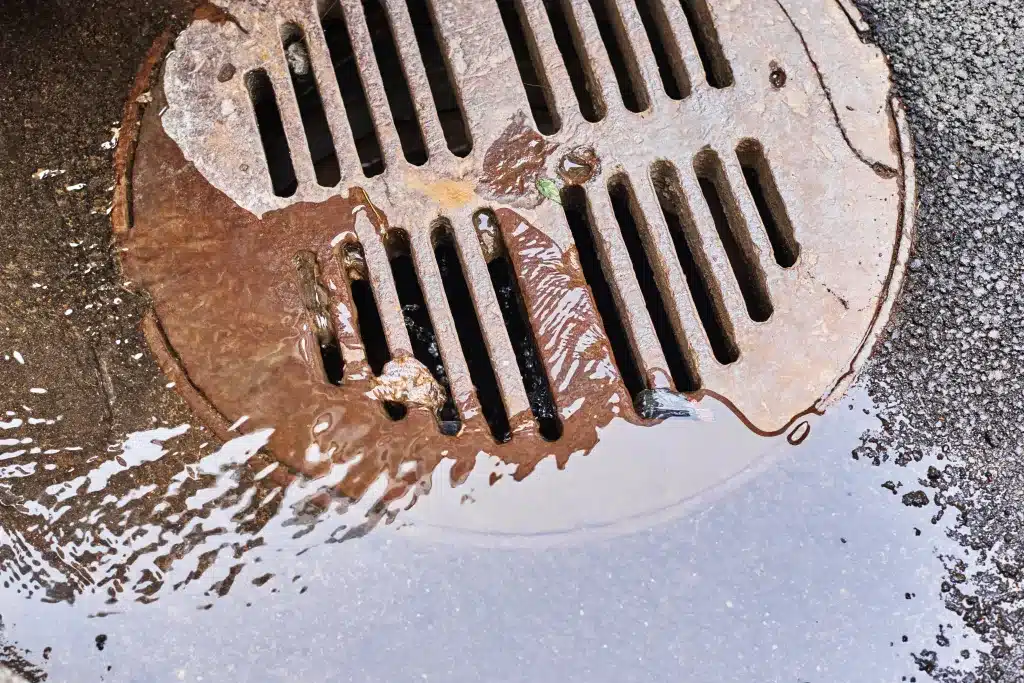
Discovering a blocked drain can be a stressful situation, and it’s important to act quickly to prevent further damage. A blocked drain can disrupt your daily routine and potentially cause water damage or foul odors in your home. When you notice that water is not draining properly, it’s crucial to identify the problem early and take steps to address it.
There are various signs that might indicate a blocked drain, from slow drainage to strange noises coming from your pipes. Understanding these signs can help you take immediate action before the blockage becomes a major issue. Taking swift and appropriate measures can save you from the inconvenience and expense of significant repairs.
In this article, we’ll discuss common signs that indicate a blocked drain, outline immediate steps to take when you discover the problem, explore the common causes of drain blockages, and provide preventative measures to keep your drains clear. By staying informed and proactive, you can maintain a healthy plumbing system in your home.
Signs Your Drain Is Blocked
A blocked drain can cause a lot of trouble if not identified early. Here are some common signs that indicate your drain might be blocked:
1. Slow Drainage: One of the first signs of a blocked drain is water draining slowly. This can occur in sinks, bathtubs, or showers. If you notice water taking longer than usual to drain, it’s a clear indication that something is obstructing the flow.
2. Gurgling Sounds: If you hear gurgling noises coming from your pipes, it means air is trapped in the drain due to a blockage. This is especially common in toilets and sinks.
3. Foul Odors: A blocked drain can produce unpleasant smells. If you detect bad odors coming from your drains, it could be a sign that debris is stuck and decomposing inside the pipes.
4. Water Backup: Water backing up into sinks, tubs, or toilets is a severe sign of a blocked drain. This means the water has nowhere to go due to the obstruction and is forced back into your home.
5. Overflowing Fixtures: When your fixtures, like a toilet, overflow frequently, it indicates a blockage somewhere in the plumbing system. This requires immediate attention to prevent water damage.
These signs help you recognize a blocked drain early, allowing you to take quick action and prevent further complications.
Immediate Steps to Take When You Discover a Blocked Drain
When you discover a blocked drain, taking immediate steps can help minimize damage and address the issue promptly. Here’s what you should do:
1. Turn Off the Water Supply: The first step is to stop the flow of water to prevent overflow. Locate the shut-off valve and turn it off to avoid making the situation worse.
2. Clear the Area: Ensure that the area around the drain is clear. Move any items that might get wet or damaged away from the affected area.
3. Use a Plunger: A plunger can be an effective tool for clearing minor blockages. Place the plunger over the drain, ensuring a tight seal, and push up and down vigorously. The pressure created can help dislodge the blockage.
4. Try a Drain Snake: For more stubborn clogs, a drain snake or auger can be useful. Insert it into the drain and crank it to break up or pull out the obstruction.
5. Boiling Water: Pouring boiling water down the drain can sometimes dissolve grease or soap buildup causing the blockage. Be cautious if you have PVC pipes, as extreme heat can damage them.
6. Baking Soda and Vinegar Solution: Mix baking soda and vinegar and pour the mixture down the drain. Let it sit for 15 minutes and then flush with hot water. This natural solution can help break down clogs.
7. Check the Trap: If the blockage is in a sink, check the U-shaped pipe (trap) under the sink. Place a bucket underneath, remove the trap, and clear any debris before reattaching it.
Taking these steps can often resolve minor blockages. If these methods don’t work, it might be time to call in a professional plumber to handle the situation.
Common Causes of Drain Blockages
Understanding the common causes of drain blockages can help prevent them from occurring in the first place. Here are some typical reasons why drains get blocked:
1. Hair: Hair is one of the most frequent culprits for blocked drains, especially in bathrooms. It can clump together with soap scum and other debris, forming a blockage that slows down the water flow.
2. Grease and Fat: In the kitchen, grease and fat can cause major blockages. When poured down the drain, grease solidifies and sticks to the walls of the pipes, trapping other debris and leading to blockages.
3. Food Waste: Food particles can create blockages, especially if they are big or fibrous. Items like coffee grounds and eggshells are particularly problematic as they don’t break down easily and can accumulate in the pipes.
4. Soap Scum: Soap can combine with minerals in water to form soap scum, which can cling to the sides of pipes and cause clogs over time. This is often seen in bathroom drains and laundry sinks.
5. Foreign Objects: Cotton swabs, dental floss, and even toys can find their way into drains and create blockages. These items can cause severe clogs and are usually tricky to remove without professional help.
6. Tree Roots: Tree roots can infiltrate underground drain pipes, causing severe blockages and even breaking the pipes. This problem often requires extensive repairs to resolve.
By knowing these common causes, homeowners can take steps to prevent blockages and maintain a smooth-flowing drainage system.
Preventative Measures to Avoid Future Blockages
Preventing drain blockages is much easier and less costly than dealing with them after they occur. Here are some effective preventative measures you can take:
1. Use Drain Guards: Install drain guards or covers to catch hair, food particles, and other debris before they enter your drains. These are easy to clean and can significantly reduce the chances of a clog.
2. Proper Disposal of Grease and Food Waste: Avoid pouring grease and food waste down the kitchen sink. Instead, dispose of grease in a container and throw food waste in the trash or compost bin.
3. Regular Cleaning: Regularly clean your drains with a mixture of baking soda and vinegar to break down minor clogs and prevent buildup. Flush with hot water afterward to clear out any loosened debris.
4. Brush Hair Before Showering: Brush your hair before getting into the shower to reduce the amount of hair that can go down the drain. This simple step can make a big difference.
5. Avoid Flushing Foreign Objects: Only flush toilet paper and human waste down the toilet. Items like cotton swabs, dental floss, and sanitary products should be disposed of in the trash.
6. Monitor Landscaping: Be mindful of trees and shrubs planted near your drain pipes. Avoid planting species known for aggressive rooting systems that can infiltrate pipes and cause blockages.
Conclusion
Discovering a blocked drain is an inconvenience that many homeowners face, but understanding the signs, immediate actions to take, and preventive measures can make a significant difference. By recognizing the symptoms early, you can act quickly to minimize damage and restore normal drainage. Moreover, being aware of the common causes of drain blockages can help you avoid them in the first place by taking simple preventative steps.
Maintaining a healthy plumbing system is essential for a comfortable home. Regular maintenance, proper disposal habits, and periodic inspections can greatly reduce the likelihood of experiencing blocked drains. If you ever find yourself dealing with a stubborn blockage or are unsure about how to handle a plumbing issue, it’s always best to seek professional assistance.
For expert help with blocked drains and other plumbing concerns, contact George Plumbing Co., Inc. We’re here to provide prompt and reliable service to keep your home’s plumbing system running smoothly. Call our licensed plumber in San Antonio today to schedule an appointment and ensure your drains remain clear and functional.





